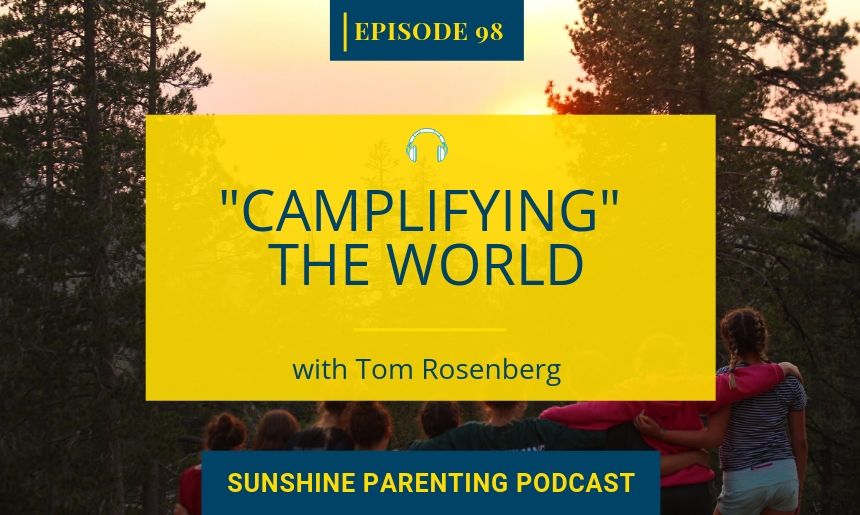
Download Episode
In Episode 98, I’m chatting with Tom Rosenberg, CEO of the American Camp Association. Last year, in Episode 46, we talked about summer camp, accreditation, and #CampKindnessDay (July 20, 2021). In this episode, we talk about the research about the positive impact of camp, our joint passion for partnering with parents to bring camp to schools and homes. Tom uses my new favorite word, “camplify,” to describe this spreading of the camp message to other venues outside of camp.
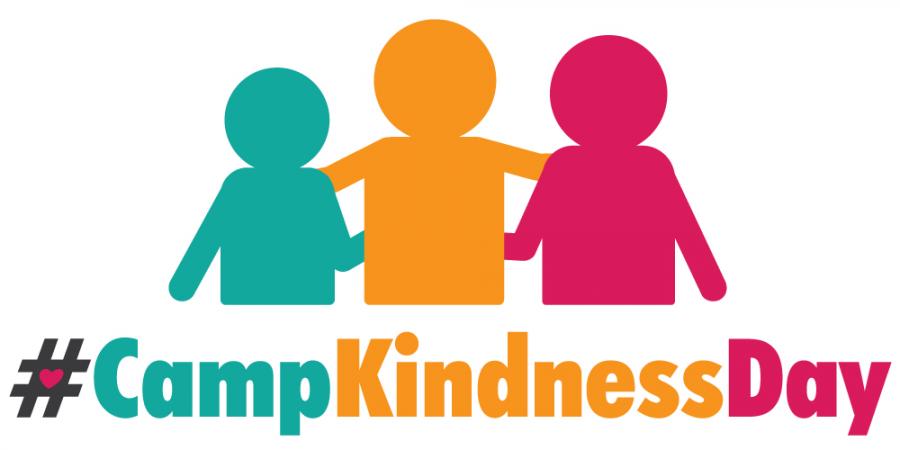
Big Ideas
- There are an estimated 14 million kids going to camps in the U.S. this summer.
- Ninety-three percent of American Camp Association camps offer financial aid and scholarships for campers. Parents need to work well in advance to apply for those resources.
- Parents can use the ‘Find A Camp’ tool on the American Camp Association’s website to search for the ACA accredited camps. This is a parent’s best assurance that a camp has met the foundational standards of a safe and healthy camp experience for their child.
- There are many different kinds of camps. There are camps for specific cultural groups, for kids with a particular medical disorder, for kids with a specific area of interest, and many, many more.
- It’s important for parents to visit a summer camp before sending their child to one so that they can see what camp is all about.
- At camp, kids have the opportunity to learn to be themselves, make mistakes, learn from those mistakes, and try again.
- The American Camp Association website provides wonderful videos and other resources for parents.
- Camp helps kids build relationship skills and learn from people with different backgrounds and experiences.
- Camp is about positive risk.
- The more kids put into their camp experience, the more they get out of it.
- People who been camp counselors before becoming teachers or parents really have an advantage when it comes to relating to kids.
- Camp techniques work at home too.
- On Tuesday, July 20, we will be celebrating Camp Kindness Day across America.
Quotes
Tom: “All different kinds of camp experiences are more accessible than ever before and we’re working hard to provide more equity around the affordability of camp, and the accessibility of experiences. Ninety-three percent of American Camp Association camps offer financial aid and scholarships. The trick is that parents have to work well in advance of the summer to apply for those resources.”
Audrey: “This is the time to start thinking about next summer. If there’s a camp that you’re really interested in, you can tour the camp while it is in session to see if its a good match for your family, meet some of the staff and campers.”
Tom: “I’m a former camp director and I’m the CEO of the American Camp Association but I still, as a dad, find myself trying to help my child not make mistakes. I find myself trying to protect him and camp is a place where kids have the opportunity to learn to be themselves and make mistakes. And learn from those mistakes and try again.”
Tom: “It’s hard for a parent that hasn’t been to camp before to have the experience, and to understand the experience, and to know how professional camp directors build a physically and emotionally safe place where young adult mentors and camp professionals create these opportunities for kids in ways that we, parents, can’t do by ourselves.”
Tom: “At camp kids learn different ideas, like learning to accept that you and I might agree to disagree about something. At camp kids have the freedom to listen and communicate better with their friends about what they believe in. And even if they don’t agree on everything, they learn to disagree amicably.”
Audrey: “In the world today, those communication skills, resolving conflicts and ‘agreeing to disagree’ are so important and many adults aren’t modeling that. One of the great things about camp is that there are going to be conflicts in the group and that’s what we want to happen. That’s how kids learn to work through things and communicate.”
Tom: “Part of growing up and getting to go to camp is to have an opportunity to take some positive risks on a progressive basis, in a structured way, so that you take risks that you’re ready for.”
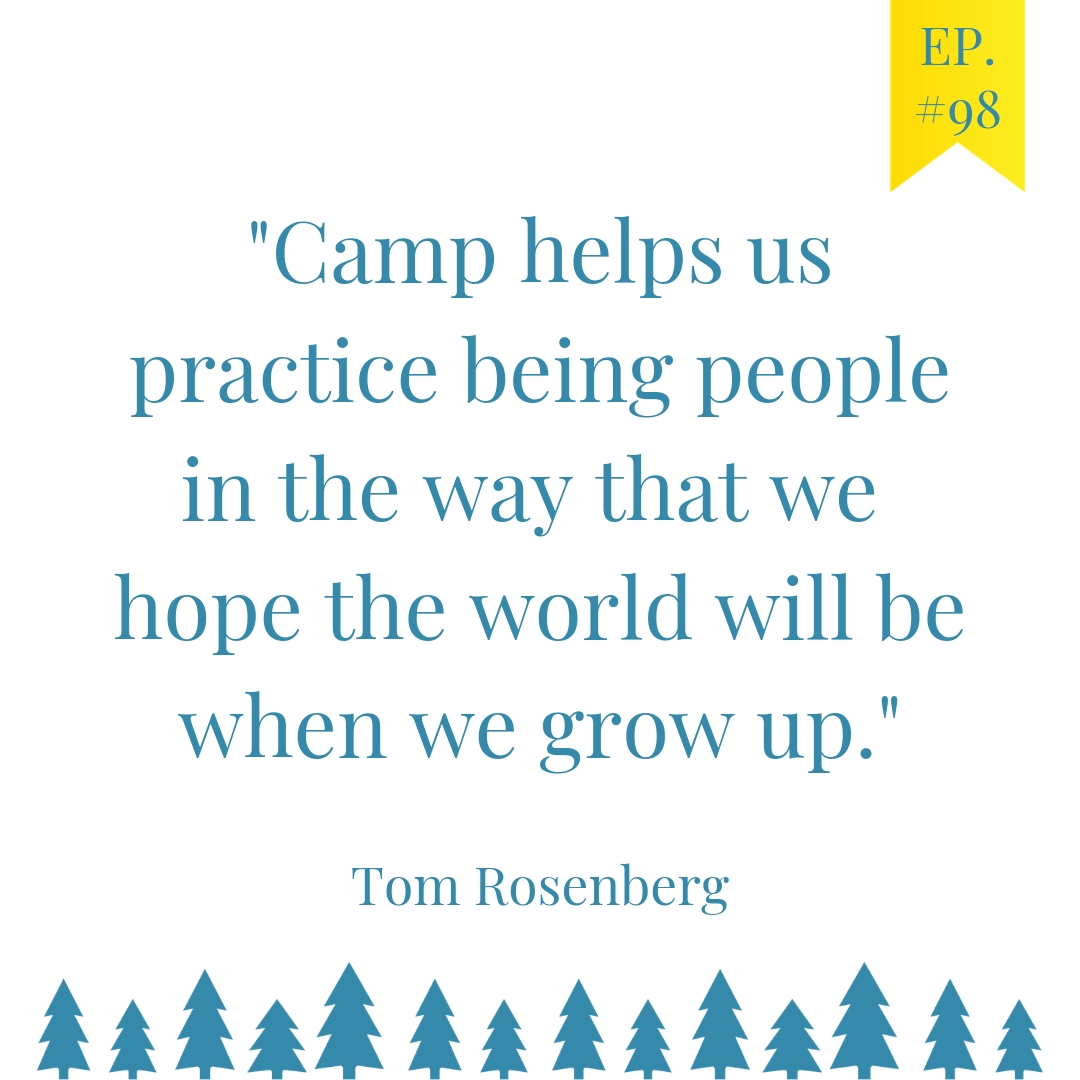
Tom: “The Pure Research Center’s study on teens, technology, and friendship found that just one out of four teens in the study were having daily out-of-school social contact time with a friend, in person. And that a great number of the new friendships that they were forming were digital. Only one out of five of those digital relationships were finding their way into the in-person realm.”
Audrey: “I’m finding that kids at camp really enjoy being off their technology when they’re at camp. Just hanging out and making these really close friendships at camp is intense face-to-face time for them. It’s very different now from their life outside of camp.”
Tom: “The Knowledge Works Foundation predicts that the most sought-after competencies for the best jobs for kids and young people in 2030-2040 are going to be those that, quite frankly, have camp skills. We’re talking about problem-solving, critical thinking, creativity, coordinating with others, emotional intelligence. So camp is positioned to help kids develop a strong inner self that will allow them to be resilient and reflective. And build strong relationships.”
Tom: “If we do our jobs right, as parents, teachers, and camp directors, this generation will be, I hope, a generation of inventors, innovators, design thinkers, and creatives.”
Tom: “Here at the American Camp Association, we are looking to help provide camp and camp-like out-of-school-time experiences for every young person in our country.”
Tom: “What we’re really trying to do is help young people and their parents bring those camp values like empathy, kindness, generosity, and compassion from camp home, from home to school, and from school and afterschool activities back to camp.”
Audrey: “We need to just continue to go out and ‘camplify’ the world. That’s the basis of what we do. We want to bring the magic of connection, relationships, nature and appreciation of differences to the whole rest of the world.”
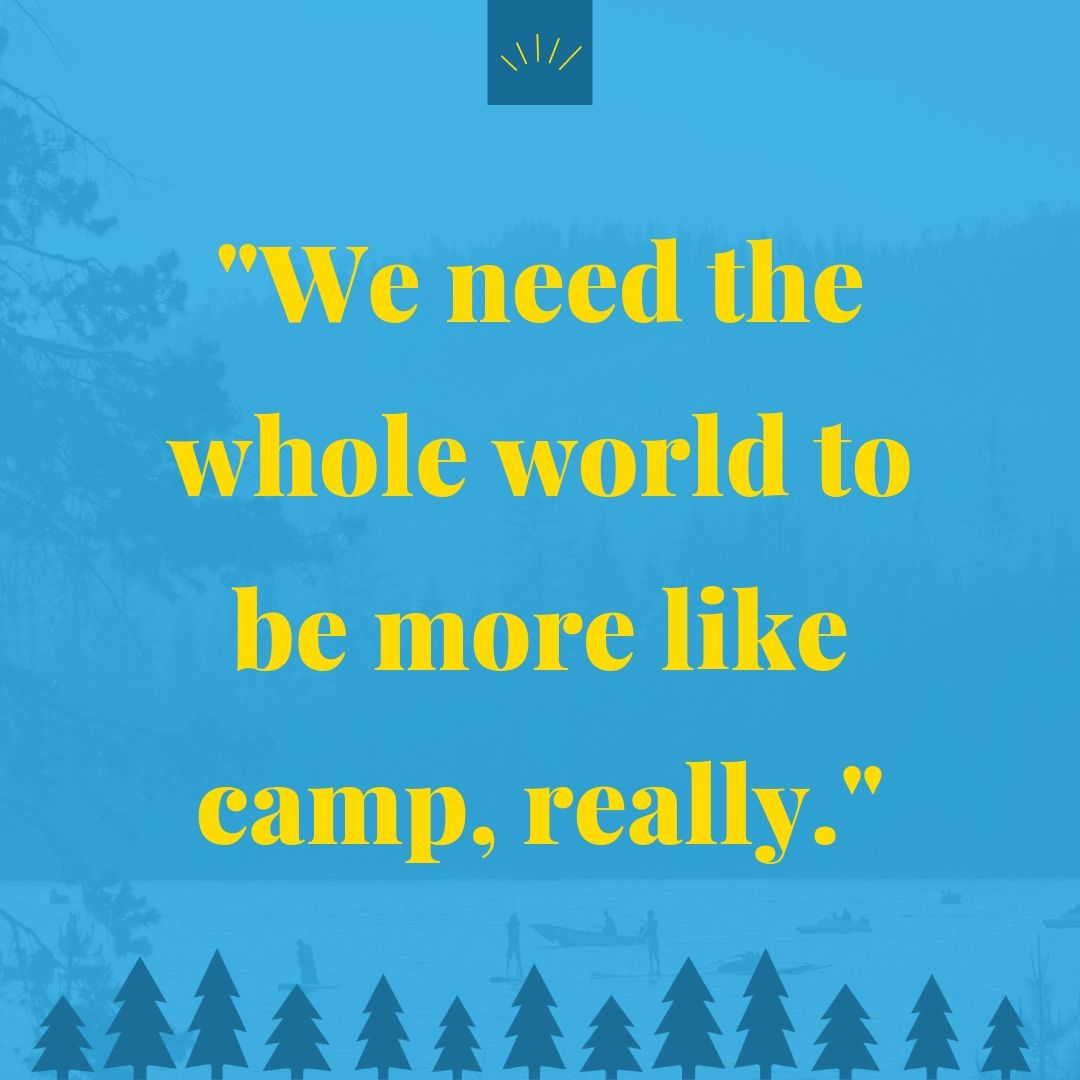
Topics We Discuss, Links, & Resources
American Camp Association (ACA)
Camp Kindness Day
On July 23, the camp community will participate in Camp Kindness Day – an event highlighting the practice of intentional kindness that happens every day at American camps. This is an opportunity to raise awareness of the great work that camps are doing to teach kindness in engaging, simple, repeatable, and high impact ways that live on in the daily lives of campers and staff members when they return home.
Focusing on our youth and young adults, Camp Kindness Day will help showcase the commitment of the camp community to fostering the core values of kindness, compassion, generosity, and care, and integrating those values more fully into every aspect of our society. These values are already part of the fabric of the camp experience. We share the mission for our youth to be nurtured, taught, supported, and inspired to grow into our new generation of kind, compassionate, socially-minded, community-oriented citizens.
Camp Kindness Day will allow camps to incorporate into their July 23 programming fun theme-based activities and cooperative games, cool projects, and memorable moments which will celebrate the value and impact of kindness.
About Tom Rosenberg, CEO of the American Camp Association
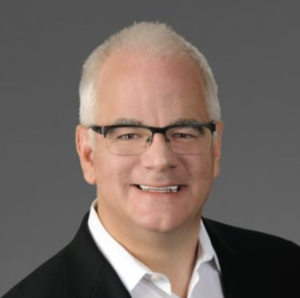 Tom Rosenberg has a distinguished career in the camp profession and a long resume of service to ACA. He most recently served as the executive director of Camp Judaea in Hendersonville, North Carolina. Prior to Camp Judaea, Tom spent more than two decades with Blue Star Camps in North Carolina, most of those years as a director. Tom is a past national treasurer and board member of the ACA as well as a past board president and treasurer of ACA Southeastern. A founding board member of the North Carolina Youth Camp Association, Tom was awarded the Henderson County Chamber of Commerce’s inaugural Camp Industry Leadership Award as well as the American Camp Association’s National Honor Award and ACA Southeastern’s Distinguished Service Award.
Tom Rosenberg has a distinguished career in the camp profession and a long resume of service to ACA. He most recently served as the executive director of Camp Judaea in Hendersonville, North Carolina. Prior to Camp Judaea, Tom spent more than two decades with Blue Star Camps in North Carolina, most of those years as a director. Tom is a past national treasurer and board member of the ACA as well as a past board president and treasurer of ACA Southeastern. A founding board member of the North Carolina Youth Camp Association, Tom was awarded the Henderson County Chamber of Commerce’s inaugural Camp Industry Leadership Award as well as the American Camp Association’s National Honor Award and ACA Southeastern’s Distinguished Service Award.
With an educational focus in business, Tom graduated with distinction from the Marshall School of Business at the University of Southern California with an MBA and from the AB Freeman School of Business at Tulane University with a BS in Management. He is also a graduate of ACA’s Camp Director Institute.
Tom melds his experience in the camp profession with business expertise, inspirational vision, successful fundraising experience, professional agility, organizational skills, and strategic focus — attributes that are essential to achieving success as ACA’s President/CEO. We are indeed fortunate to have such a thoughtful, dedicated, and experienced leader who is willing to take his commitment to camp, youth development, and ACA to a greater level. Tom, his wife Pam Sugarman, and their son Daniel live in Atlanta, Georgia.
Links & Resources
American Camp Association (ACA)
Find a Camp (ACA’s searchable database)
Related Posts
Ep. 87: The Impact of Camp Experiences
Ep. 46: Camp Kindness Day (2018)
Research Finds Children Learn Social Skills at Camp
5 Reasons Not to Worry While Your Kids are at Camp
Too Much Screen Time? 4 Ways Summer Camp Can Help
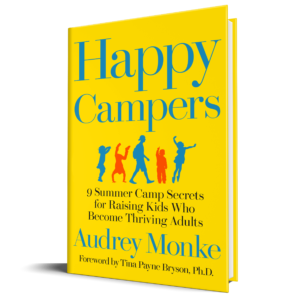 Happy Campers, 9 Summer Camp Secrets for Raising Kids Who Become Thriving Adults
Happy Campers, 9 Summer Camp Secrets for Raising Kids Who Become Thriving Adults
If you’re interested in joining a group conversation, seeing videos and additional resources related to Happy Campers, visit the Book Hub.
Download Episode
